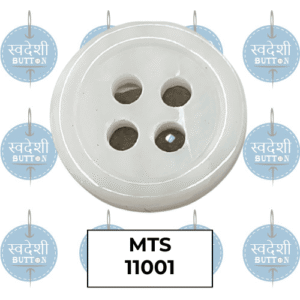Why Food Businesses Choose Kosher Certification

Kosher Certification
Today’s consumers care about what goes into their food and how it’s made. Clean ingredients, transparent production, and strict safety standards have become essential. That’s why more food companies now choose to earn a Kosher Certification —not just to meet religious standards, but to show commitment to quality and integrity.
What Does a Kosher Certificate Mean?
A Kosher Certification confirms that a product meets Jewish dietary laws, known as kashrut. These laws describe which foods are acceptable and how manufacturers must prepare, process, and package them.
For example, kosher rules do not allow the mixing of meat and dairy. They also require that equipment is cleaned properly and ingredients are sourced from approved suppliers. If a food business earns a Kosher Certificate, it means an official kosher agency has inspected their operation and approved it according to these strict guidelines.
Why Do Modern Companies Get Kosher Certified?
Many companies seek kosher certification to gain customer trust and expand into new markets. A Kosher Certification shows that a business follows high standards of hygiene, food safety, and ingredient sourcing. It reassures consumers that what they’re eating has passed a thorough review.
It’s not just about religious compliance anymore. Non-Jewish consumers also choose kosher-certified products because they trust the process behind them. Retailers and distributors around the world—especially in the U.S., Europe, and Middle East—often prefer kosher-certified items for this reason.
In short, businesses that want to build trust and increase reach often start with a Kosher Certificate.
How Does a Company Get a Kosher Certificate?
Getting certified involves a few key steps:
-
Initial Contact: A company reaches out to a kosher certification agency.
-
Submit Details: They share information about ingredients, recipes, suppliers, and production processes.
-
Inspection: An expert from the agency visits the facility to inspect everything from equipment to ingredient storage.
-
Approval: If everything meets kosher standards, the agency issues the Kosher Certificate.
-
Follow-Up: The agency conducts routine checks to ensure continued compliance.
This structured process gives buyers and consumers confidence that the kosher label on a product truly means something.
Who Provides Kosher Certification?
Certified kosher agencies—led by trained rabbis and food safety professionals—handle the certification process. These agencies may operate globally or locally but follow a consistent set of religious and food safety rules.
Some of the best-known agencies include the Orthodox Union (OU), Star-K, OK Kosher, and KOF-K. In India, local kosher certifiers also work with global standards and are well-respected in export markets.
Businesses choose an agency based on their target audience and preferred export destinations. Choosing a recognized name can boost credibility instantly.
What Are the Benefits of a Kosher Certificate?
Here’s what companies gain by becoming kosher certified:
-
Market Expansion: Businesses can sell to more countries and large retail chains.
-
Consumer Confidence: Customers trust kosher-certified products for quality and purity.
-
Higher Sales: Kosher labels often attract more buyers, including health-conscious and vegetarian consumers.
-
Brand Credibility: A Kosher Certification proves a company follows consistent, high-quality practices.
-
Compliance and Standards: Certification helps businesses meet strict global food standards.
Final Word
Earning a Kosher Certificate is not just a formality—it’s a strategic move that helps food businesses grow. It signals that a company respects quality, transparency, and customer trust.
Whether you’re a food manufacturer looking to export or a local brand aiming to stand out, kosher certification adds real value. And for consumers, that little symbol on the label means a lot more than tradition—it means trust.



